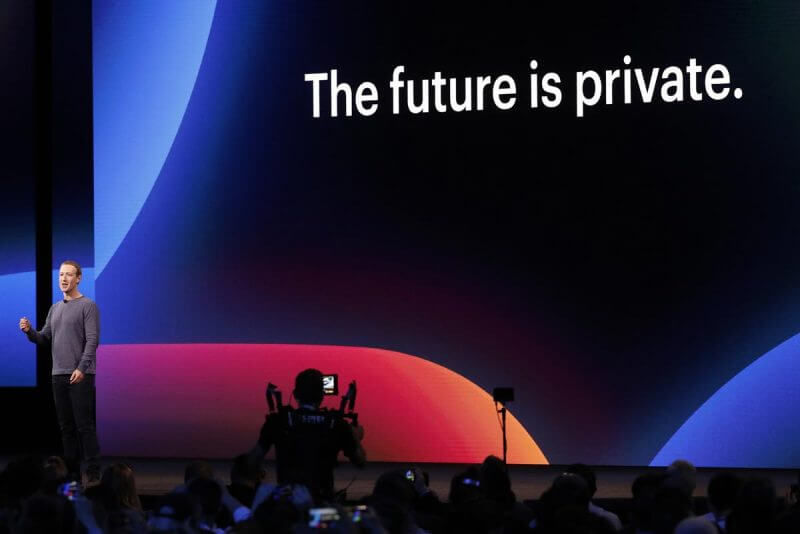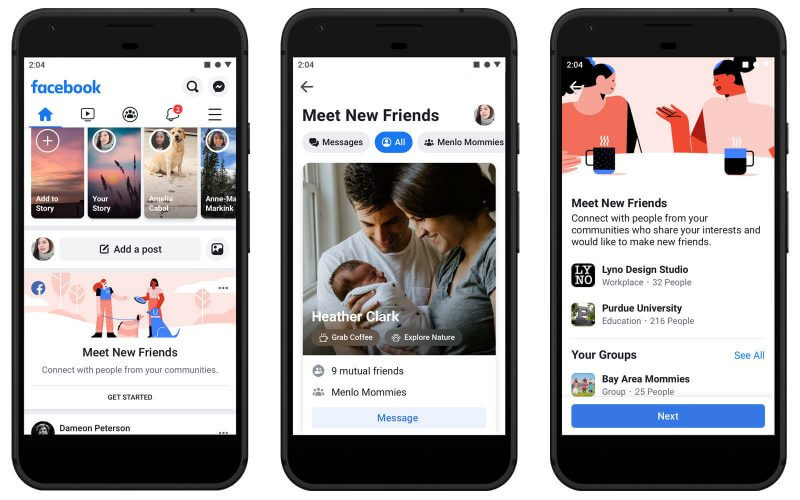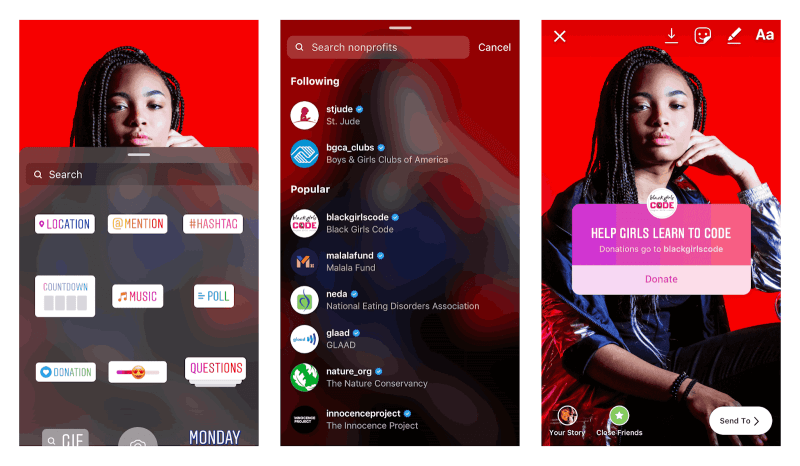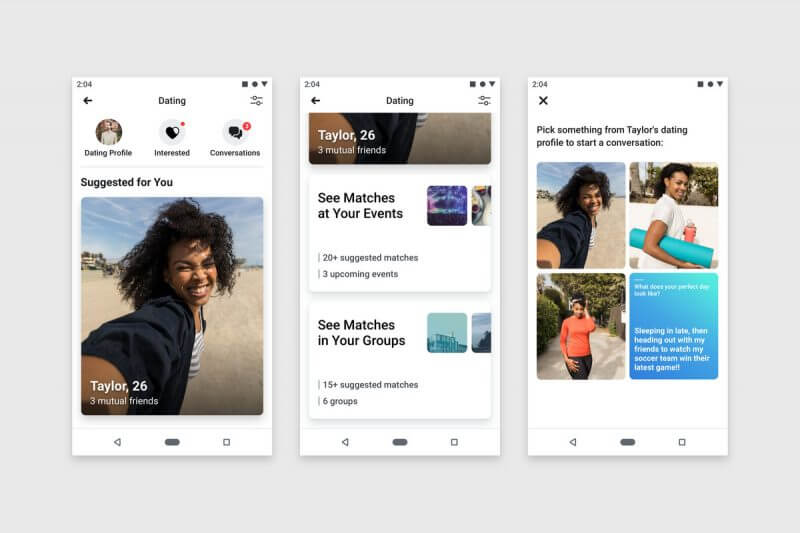The Future of Facebook
The F8 Conference which took place on April 30th, 2019 featured Mark Zuckerberg and his fellow colleagues unveiling plans for Facebook’s future.
Privacy Focused

According to Zuckerberg, the future of Facebook rests on six basic principles: private interactions, encryption, reduced permanence, safety, interoperability, and secure data storage.
Historically, Facebook has failed to uphold these values time and time again, but this large-scale redesign brings a beacon of hope for user data confidentiality. Can Facebook really deliver on such a large promise? Only time can tell. As stated by Zuckerberg, Messenger will be at the forefront of these changes, with end-to-end encryption to ensure private messaging for users.
The Messenger app will also become available for both Mac and Windows, with a dark mode option on macOS. The app is currently undergoing an IOS redesign to reduce the amount of required storage space on mobile phones, reducing the overall size of the app by 20% with the new version taking up under 30MB.
Group Focused

Facebook is shifting its focus from the individual to the collective. The platform is pushing towards highlighting groups and events by creating a new tab that offers users a personalized news feed from groups and events while downplaying the general news feed that characterized Facebook for so long.
"Meet New Friends" is an upcoming feature that will allow users to expand their social circles. The feature will allow strangers to connect with others on the basis of their commonality (whether it be interests, employers, or education).
Creator Focused

Instagram, owned by Facebook, will not be left out of this major UI makeover. “Create Mode”, which seems to take inspiration from Snapchat's wildly successful "story" feature, will let users create posts without needing to upload already existing photos or videos. Instead, users can upload content in real time.
Shopping tags - another new feature - will enable influencers, artists, and celebrities to tag a product featured in their post so other users can simply tap the item and buy it directly without ever having to leave the app.
Visible likes may become a thing of the past, as Facebook is testing out a new user interface for Instagram that will hide the number of likes on Instagram posts. The goal is to reduce feelings of stress and anxiety among users. This test will be carried out in Canada, and if proven successful we can expect other countries to gain access to this system.
Finally, Instagram is launching a donation sticker for stories which enables users to donate money to the nonprofit organization of the poster’s choice. Facebook ensures that 100% of the raised funds will go directly to the nonprofit.
Love focused

Facebook dating service, which was introduced during the 2018 F8 conference, will now be expanding to 14 countries with a brand new feature: “Secret Crush”. This feature enables Facebook users to create a private list of Facebook friends they are attracted to, regardless of whether or not their “crushes” have Facebook dating profiles or not.
However, if their "crush" is also using “secret crush”, and they add a corresponding user to their private crush list, Facebook will notify both parties that they've “matched”.
Empty promises?
Facebook’s strategy seems to rest in regaining public trust to convince users that their platform is, in fact, both private and safe, a belief that few still hold following the multiple scandals the company has faced regarding user privacy.
Facebook is an internet advertising monopoly platform of enormous size. Together with Google, the two companies capture over ½ of all the growth in global ad spending. Facebook has been operating as an advertising platform since mid-2010. According to the Facebook Annual Report from 2016, the 27.64 billion dollars made in revenue by the company was almost exclusively as a result of advertising, with 83% if the overall revenue coming from mobile advertising specifically. Considering that user data is the most valuable asset for advertisers, user privacy will always take a backseat to profit.
While this shift to putting user privacy at the forefront sounds good in theory, in reality placing groups at the forefront of the Facebook business model will likely result in increasing echo chambers, which work to produce an environment in which a user will increasingly only become exposed to beliefs and opinions which reinforce their own, while alternative ideas progressively disappear.
End-to-end encryption to enable private messaging sounds compelling, but it doesn't come without additional problems. Fake news thrives in such an environment, and this can have deadly consequences as already demonstrated by the lynching that occurred in India in 2018 after rumours of child traffickers in the area resulted in 17 alleged deaths. Police found that these rumours were mainly spread through WhatsApp, an encrypted messaging service owned by Facebook. Doctored videos and false messages were found to be forwarded to groups containing 100+ members. Due to its privacy settings, group administrators take on the role of moderators, who become responsible for flagging and removing abusive and harmful speech (including false information). Depending on third parties such as individual users to be responsible moderators seems both reckless and dangerous.
It was only around half a year ago that Myanmar military personnel used Facebook to spread anti-Rohingya propaganda (a Muslim minority group in a primarily Buddhist country) using fake accounts and identities. The results were devastating, with 25,000 Rohingyas killed and over 700 thousand forced to flee the country.
Final Thoughts
It is difficult to put much faith in Zuckerberg’s vision of facebook's future as private when the company has proven time and time again that they care more about profit than user privacy. Furthermore, it feels rather disingenuous to preach a future of user privacy from a company that has spent years exploiting the trust of its users.
The future of Facebook seems to be much more based on pure survival rather than any real concern about user safety. Facebook is desperately trying to regain the trust of users, especially following the Cambridge Analytics scandal. More than anything else, Zuckerberg appears to be trying to save face.